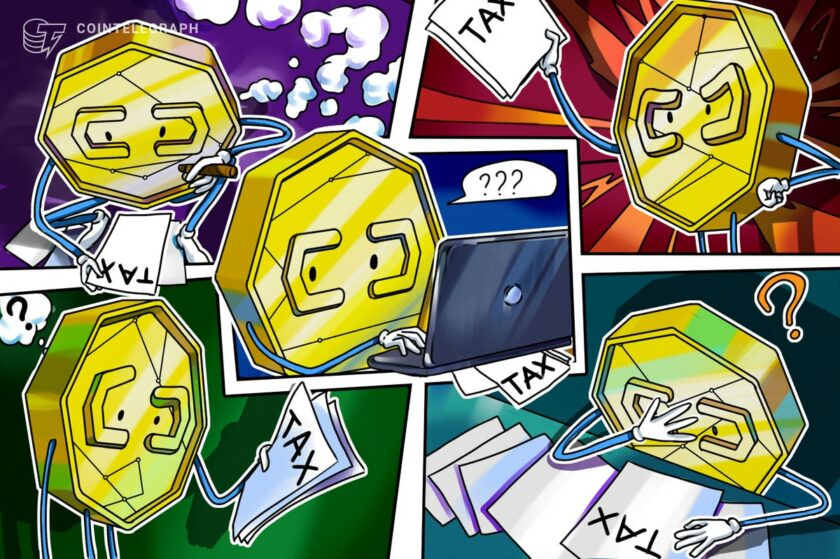Monero: The Last Stand for Freedom
Privacy currency Monero has been rallying recently, reaching a two year high of $134.34 on October 13. It is the 15th largest digital coin by market capitalization at the time of writing. Let’s take a look at why we say Monero: The Last Stand For Freedom.
The rally was seen in other privacy coins as well such as Zcash and Zcoin and comes in the wake of international demand for strong encryption. A recent joint statement by the US, UK, Australia, Canada, New Zealand, Japan, and India called for protection and safety through encryption while allowing access to data for governments in order to track digital activities when needed. The statement stated that companies should install encryption “backdoors” in order to protect privacy. This development clearly gave fillip to the privacy coins recently. Coming as it does in the aftermath of a lot of controversy surrounding privacy coins, it raises some important questions about the use cases of privacy coins and their risks.
So what does this have to do with XMR’s recent price action?
When it first launched, XMR was touted as the better Bitcoin. Bitcoin’s public key makes every user pseudonymous rather than truly anonymous. True anonymity is possible only where there is privacy. In the case of BTC, with repeated transactions and with time, it may be possible to trace an address to a person. This results in the linkability of addresses to transactions. Further, with Bitcoin, addresses and transaction values can be seen on a public ledger. This makes it possible to know the value of a transaction and trace transactions to unique addresses. While this traceability makes every BTC transaction tamper-proof and immutable, it can sometimes be a risk. If a particular transaction is later identified as an illegal transaction such as a double-spend, it is possible to treat all other transactions that follow the illegal transaction as illegal as well. The traceability risk is one that is present for every transaction in Bitcoin and can affect its fungibility or the ability to exchange it for something else in a transaction.
Highlighting these problems in Bitcoin in a white paper that led to XMR, Nicolas van Saberhagen’s cryptonote 1.0 seeks to ensure the privacy of transactions, users, and receivers even while retaining the peer-to-peer and proof-of work trust systems that Bitcoin operates on. However, unlike BTC’s public ledger and unique addresses, the new cryptographic configuration would use ring signatures that obfuscate the sending and receiving addresses as well as the amount transferred. When using BTC, the public ledger makes the amount transferred transparent and the public key makes transactions traceable to their origin and destination. Unique addresses create identifiable recipients, transactions, and senders since the addresses and transactions are all public. However, by throwing some ambiguity into the mix through ring signatures, and by using one-time public keys, traceability and linkability can be reduced dramatically.
The Use Cases of XMR:
Monero was launched in 2014 to address the privacy issues of Bitcoin’s public ledger. The Monero community includes 500 developers and 30 core developers now.
Monero uses the principle of the electronic cash triangle. Payments are digital, decentralized, and private. Thus while like Bitcoin, it supports digital and decentralized transactions, unlike Bitcoin, it ensures privacy. With Monero’s privacy higher security is possible as it is nearly impossible to trace a transaction or a sender or receiver. It is equally difficult to link a specific transaction to a particular address.
Monero does not hold the history of earlier transactions and this removes the possibility of a transaction being labelled as not legitimate because of an earlier transaction. This increases the fungibility of XMR since no transaction is attached to a history.
Its proof of work trust system seeks to remove the centralizing effect of Bitcoin’s own proof of work that rewards higher mining power through application-specific integrated circuits (ASIC). ASICs are specialised integrated circuits that are used to mine cryptocurrencies at a much faster rate than other nodes, giving them an advantage and a much greater chance of completing a block and winning a reward. Monero has removed ASIC and this is one of the ways in which it has decentralized mining.
The cryptocurrency configuration to achieve privacy:
Monero achieves privacy through a set of private and public keys. The public view key and public spend key generate public addresses to which funds can be sent. The private view key allows anyone holding the key to view transactions coming into a particular wallet address. The private spend key is used to sign transactions or outputs being sent out of a wallet. Through a combination of these keys, Monero achieves anonymity for the sender and receiver while allowing the transaction to be concealed as well.
Stealth Addresses and solving the issue of linkability:
As opposed to Bitcoin, Monero proposes stealth addresses that are not revealed through unique public keys. To send a payment, a sender creates a one-time address for the recipient and though the recipient has one public address, the sender’s payments can go to several addresses that cannot be traced back to the recipient’s published address. Transactions are assured privacy on Monero through stealth addresses that are strictly one-time uses.
Ring Signatures and solving the issue of traceability:
Monero substitutes unique and therefore traceable signatures that initiate a transaction with group signatures. When a single digital signature is used for a transaction, the transaction can be traced back to that signature and sometimes even to the owner of that signature. However, with group signatures or ring signatures, any one of a group of signatures may authorize a transaction. In an actual transaction, the actual signature is mixed with other decoy signatures to obfuscate the record on the open ledger. It is therefore impossible to identify which signature and therefore which address initiated the transaction. Thus for someone other than the sender and the receiver, it is impossible to trace a transaction since the signature could have been one of several signatures. Ring signatures also increase the fungibility of XMR since there is no clear history of transactions that could affect a single transaction.
Ring Confidential Transactions and private dealings.
Besides not being able to trace the sender or the receiver not being able to link a transaction to a signature, Monero allows the amount of a transaction to be private as well. The transaction value is encrypted and it is sent to the receiver using the receiver’s private view key and the sender’s public spend key.
In other words, Monero’s one-time addresses prevent histories and tracing; its ring signatures mix noise and signals in order to make each transaction unlinkable and private and its combination of private and public keys allow transaction values to remain private.
Risks
The Dark Web.
Cryptocurrencies in general offer pseudonymity in transactions and this has spawned their use in legal and illegal markets. While Bitcoin appears to be the top currency used in these dark web transactions, Monero’s XMR with its privacy protocols is also a frequently used coin. The non-traceability and unlinkability of transactions in XMR are a dual-edged sword: in protecting the privacy of users and of transactions, Monero potentially protects transactions from hackers and increases the fungibility ot XMR. At the same time, its privacy features allow it to become a great tool for illegal activities.
Recently, Cisco’s Security Intelligence and Research Group, Talos discovered increasing activity signalling attempts to steal computer resources to mine Monero.
Delisting
As a result of the association of privacy coins with an increased risk of illegal activities, several exchanges have been withdrawing support for these currencies. OKEx announced that along with XMR, it would discontinue support of privacy coins Dash, Super Bitcoin, Horizen and ZCash. All five coins allow private dealings through additional encryption. XMR has also been delisted from several other exchanges due to this risk. BitBay announced its delisting due to the money laundering issues of XMR. Australian exchanges Coinspot, Coinjar and Swiftx have also delisted the privacy coin.
Tracking XMR transactions:
Identifying and building the tracking capability to crack Monero has been an ongoing effort. CipherTrace announced its first Monero tracking for law enforcement and government investigation on August 31st.
More recently, the IRS announced a reward of over $1 million to Integra FEC and Chainalysis to develop a tool to break Monera’s privacy protocols. Amongst the several privacy coins available today, Monero is the most popular and is worth $2.3 billion. XMR offers the invaluable proposition of privacy on a public ledger. However its higher susceptibility to illegal transactions compared to other cryptocurrencies such as Bitcoin remains a problem. The two sides of the privacy coin will continue to determine regulatory investigations, price action, and XMR’s community following going forward. We believe privacy is extremely important in society and this applies to cryptocurrencies and why Monero may be the Last Stand For Freedom.
Use The FREE Monero Calculator To See Current Prices
https://freecurrencyrates.com/en/convert-XMR-USD
Click Here To Read Our Recent Articles:
Cryptocurrencies Are High Risk Trades/Investments So Please Do Your Own Due Diligence Before Trading/Investing.
We May Receive Compensation If You Purchase Products Through This Site.




… [Trackback]
[…] Read More on that Topic: tradingbtc.com/2020/10/19/monero-the-last-stand-for-freedom/ […]
… [Trackback]
[…] Information on that Topic: tradingbtc.com/2020/10/19/monero-the-last-stand-for-freedom/ […]
… [Trackback]
[…] There you will find 94518 additional Information to that Topic: tradingbtc.com/2020/10/19/monero-the-last-stand-for-freedom/ […]
… [Trackback]
[…] Read More to that Topic: tradingbtc.com/2020/10/19/monero-the-last-stand-for-freedom/ […]
… [Trackback]
[…] Find More to that Topic: tradingbtc.com/2020/10/19/monero-the-last-stand-for-freedom/ […]
… [Trackback]
[…] Find More here on that Topic: tradingbtc.com/2020/10/19/monero-the-last-stand-for-freedom/ […]
… [Trackback]
[…] Read More Info here on that Topic: tradingbtc.com/2020/10/19/monero-the-last-stand-for-freedom/ […]
… [Trackback]
[…] Read More to that Topic: tradingbtc.com/2020/10/19/monero-the-last-stand-for-freedom/ […]
… [Trackback]
[…] Here you will find 2272 more Information to that Topic: tradingbtc.com/2020/10/19/monero-the-last-stand-for-freedom/ […]
… [Trackback]
[…] Find More Info here on that Topic: tradingbtc.com/2020/10/19/monero-the-last-stand-for-freedom/ […]